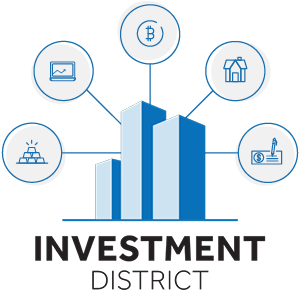Quantitative easing and the possible impact on the housing market
As of November 2023, the United States finds itself in a unique situation, concurrently providing aid in two major international conflicts, including the conflict in Ukraine versus Russia and its involvement in the Middle East on behalf of Israel, as well as the federal budget deficit for fiscal year 2023 totaling $1.7 trillion.5 As such, elected officials may think it’s necessary reverse course on quantitative tightening to counter inflation, prompting the Federal Reserve to monetize the U.S. debt to prevent economic failure.
Historically, during times of economic stress, elected officials look closely at two options: 1. Let the economy fail so it can purge itself from its sickness; or 2. Monetize the debt (print money).6 It’s possible that this move will unfold during the 2024 election year, with global conflicts serving as a cloak for excessive government spending.
During times of quantitative easing, equities tend to rise, and interest rates decrease. One possible outcome of these changes is existing home sale numbers crossing the 4 million mark in 2024.
Listing inventory dynamics: Unveiling the reality
As of October 2023, the housing inventory numbers showed 737,480 listings.7 It is essential to recognize that this phenomenon is not driven by fewer sellers, but by fewer buyers. For instance, in Naples, Florida, there are four homes listed for sale on a single street, the highest number seen in three years. As we move into 2024, we may see listing inventory numbers to continue to rise, providing opportunities for astute investors.7
Short-term rentals and the market landscape
The short-term rental market, which witnessed a surge in recent years, is also facing a transformation. AirDNA forecasts that there will be 1,450,325 short-term rental listings in 2024.8 If even 20 percent of these property owners decide to exit the short-term rental market and instead list their properties for sale, there could be an influx of nearly 300,000 listings. This shift could potentially bring the market back to pre-pandemic listing numbers.8
[Related: Turning Your Investment Property into a Short-Term Rental]
The rental market surge
An interesting development is the rise in renters. As of Q3 2023, there were over 44 million renter-occupied homes in the U.S., indicating a growing pool of potential tenants.9 The rental market is experiencing a surge, offering an alternative avenue for investors to explore.
[Related: How Real Estate Investors Can Reach Their Goals Faster]
Conclusion
The real estate market in 2024 is laden with opportunities for self-directed IRA investors. The data-driven analysis presented here paints a rosy picture, backed by economic indicators and market dynamics. The ability to anticipate market trends, combined with the imminent changes in interest rates and inventory dynamics, provides investors with the tools to make informed decisions.
About James P. Schlimmer
James P. Schlimmer is the CEO of Equity Real Estate Services. Renowned as a pioneer in the real estate industry, Schlimmer has been paving the way for innovation in a field that has been stagnant and overly complicated for far too long. For nearly a decade, Schlimmer has worked diligently, assisting buyers and sellers by revolutionizing the closing process with a more modern, seamless approach.
Equity Trust Company is a directed custodian and makes no recommendations or representations as to Equity Real Estate Services and any information communicated by Equity Trust Company is for educational purposes only and should not be construed as tax, legal, or investment advice. Clients are in no way obligated to purchase services from Equity Real Estate Services and are free to purchase such services from any company as they deem appropriate. No customer may rely on any statement made by Equity Trust or any of its officers, directors, employees, or agents for any decisions regarding the use of the service offered by Equity Real Estate Services. Whenever making a decision related to your account, please consult with your tax, financial, or legal professional.
Sources
1. Bureau of Economic Analysis – Gross Domestic Product Third Quarter 2023
2. National Bureau of Economic Research – “Housing is the Business Cycle” by Edward Leamer
3. FRED – 30-Year Fixed Rate Mortgage Average in the United States
4. National Association of Realtors – Existing Home Sales
5. Congressional Budget Office – Monthly Budget Review: Summary for Fiscal Year 2023
6. The Changing World Order: Why Nations Succeed and Fail by Ray Dalio
7. FRED – Housing Inventory: Active Listing Count in the United States
8. AirDNA – Industry Report
9. FRED – Occupied Housing Units: Renter Occupied








